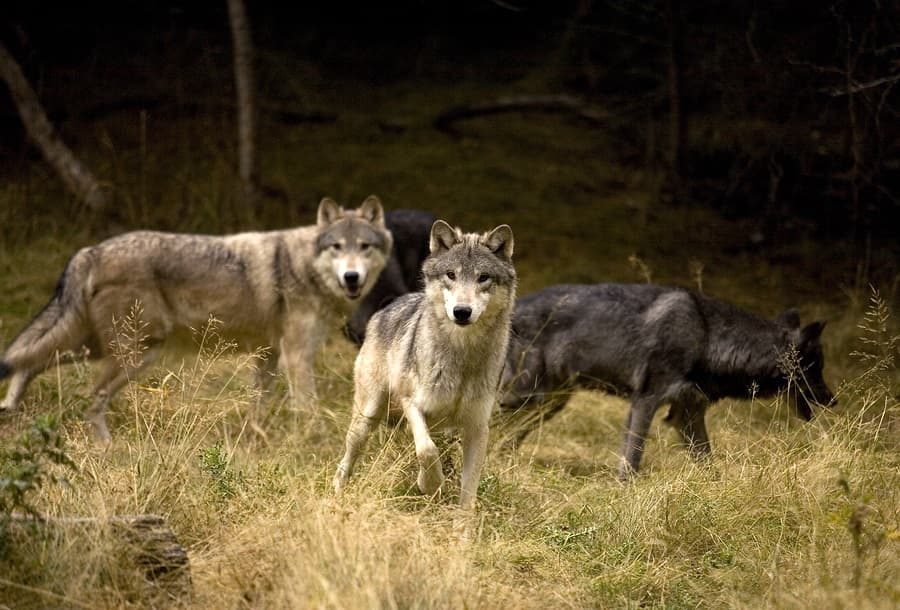As time goes by, our understanding of what makes a great leader evolves. New performance management trends develop, our understanding of human motivation advances. But sometimes it’s worth going back to basics and looking to nature to see what we can learn. When it comes to dominating our market and inspiring our teams, what can we learn from animals — specifically, wolves?
At our core, we’re all animals. In fact, as human beings, we’re social animals, just like wolves. We organize ourselves into groups, and we work out how to function and thrive. The thing is, your employees have choices — more choices than ever in today’s war for talent. They can choose to pick another pack. To keep that from happening, let’s look to the wolf and ask: What can we learn from their leadership style?
The importance of communication
You might think their howling is all noise, but wolves actually have highly-tuned and refined communication skills. Via barks, howls, and tiny adjustments in their body language, wolves convey messages, excitement and warnings. This communication keeps each pack synced and efficient.
As leaders, we have a lot to learn from this continual and highly sophisticated communication. The best leaders communicate “often and openly.” They are always present and available, engaging their team members in meaningful conversations. They also take the time to listen, so each member of their team has the opportunity to contribute.
Work hard and play hard
It’s all too easy for us to get absorbed in our work and lose our sense of a healthy work-life balance. This tendency is especially true for perfectionists. There is certainly a danger of working too hard. The World Health Organization acknowledged this recently by openly recognizing employee burnout as an occupational phenomenon. Hard work is great. Too much hard work results in presenteeism, stress, anxiety and, ultimately, a loss of productivity.
The concept of “work hard and play hard” is something wolves have down to a fine art. Wolves can travel up to 30 miles each day in search of food. They cover huge areas and sometimes have to fight to survive. But they also love to play. These social creatures play together well into their old age, which helps to create incredibly strong bonds.
The benefits of sharing the load
No man is an island, and no manager should try to do the work of their whole team. Micromanagement is demoralizing for employees who want to feel a sense of ownership over their work. More than ever, employees want their work to provide meaning and purpose. They won’t feel a sense of purpose, ownership, or autonomy when you — as their leader — are standing behind them telling them exactly how to work.
Wolves understand the most effective way to get things done is to share the load. It lessens the burden on the leader and every other member of the pack. They understand success relies on teamwork; that working together, rather than in isolation or against one another, gets the best results.
A 2017 study conducted by researchers at the Wolf Science Center at the University of Vienna illustrates this perfectly. The researchers engineered an experiment that required the wolves to pull ropes at the same time, at different ends of a tray, to get a treat. Five of seven wolf pairs succeeded. The experiment was replicated with dogs — only one out of the eight dog pairs were successful.
Learn to trust your employees, Take a step back, loosen the reins, and you’ll get further together.
Perseverance and acceptance
It’s not an easy life for a wolf. Every day is about survival. When it comes to hunting and eating, wolves fail more often than they succeed. Their success rate lies anywhere from 3% to 14%. Rather than dwelling, wolves keep going. They persevere, they learn lessons, and they improve. Wolves are forward-thinking, and in this regard we have a lot to learn from them.
It all boils down to a concept known as “psychological safety.” Following the findings of “Project Aristotle,” Google developed five key dynamics core to every successful team. Psychological safety was chief among them. Psychological safety is simply the belief that no employee should be shamed or humiliated for speaking up with concerns, ideas or (most importantly) mistakes.
Amy Edmonson, who coined the phrase, discovered that successful teams reported making more mistakes than others. This is not because they made more errors, but because they created an environment where people felt comfortable to own up to and share the lessons learned from their mistakes. This “failing fast” approach is something leaders should learn to accept if they want to encourage dynamic, confident, robust teams.
